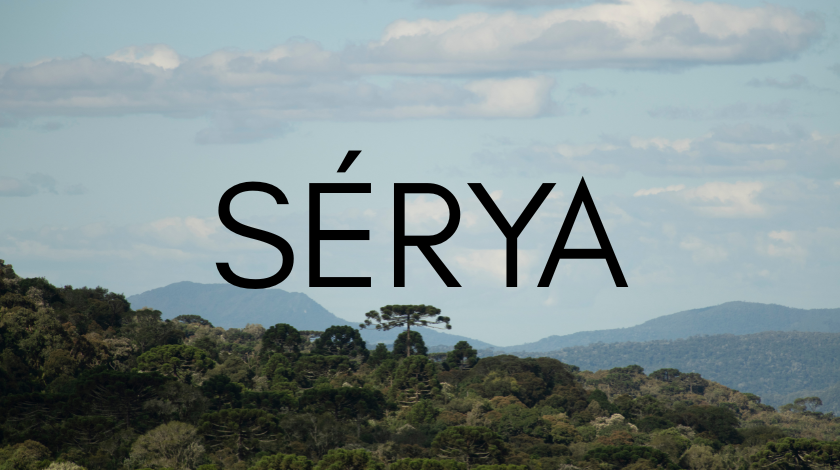When people think of Brazil, potatoes are not usually the first crop that comes to mind. Coffee, sugarcane, and soybeans dominate the country’s agricultural headlines. But tucked away in Araxá, a city in Minas Gerais, there’s a company called Sérya that has been making waves in the frozen potato industry.
Sérya might not be a household name outside Brazil, but within the food industry it has become increasingly important. In 2019, McCain Foods, one of the world’s largest frozen potato producers, acquired a 70 percent stake in Sérya, signaling how valuable the company had become in the Brazilian market.
In this article, we’ll take a deep dive into who Sérya is, why McCain chose to invest, and what this means for Brazil’s frozen potato industry. Along the way, I’ll also share some personal reflections on food trends, sustainability, and why local companies like Sérya matter in a globalized food system.
1. Company Background: Who Is Sérya?
Sérya is a Brazilian company that specializes in frozen potato products. Based in Araxá, Minas Gerais, the company was founded to meet the growing demand for convenient, ready-to-cook potato-based foods.
Its focus is on pre-formed frozen potato products. That includes French fries, potato sticks, croquettes, and other potato-based snacks that are especially popular in food service (restaurants, fast food chains, school cafeterias, and catering services).
What makes Sérya notable is its production capacity. At the time of McCain’s investment, Sérya had the ability to produce around 10,000 tons of frozen potato products annually. For Brazil, this was significant. While that figure might seem small compared to North American or European production facilities, it gave Sérya a solid position in a market that was just starting to expand.
Another important point is that Sérya had ties to Forno de Minas, a well-known Brazilian bakery company famous for pão de queijo (cheese bread). This connection helped it grow quickly by having access to distribution channels and business expertise.
2. The McCain Acquisition
In May 2019, McCain Foods announced it had acquired a 70% stake in Sérya. For McCain, which is headquartered in Canada and sells frozen potato products worldwide, this was a strategic step into the Brazilian market.
Why Brazil? Several reasons stand out:
-
Growing demand for convenience food: Brazilian consumers, especially in urban areas, were eating more quick, ready-to-cook foods. Frozen French fries fit perfectly into that lifestyle.
-
Food service growth: Fast-food chains and restaurants in Brazil were expanding, and many relied on frozen potato products.
-
Long-term potential: While the frozen potato market in Brazil was smaller than in North America or Europe, its growth trajectory was steep.
By acquiring Sérya, McCain didn’t have to build operations from scratch. Instead, they gained a local player with production facilities, knowledge of the Brazilian market, and room for expansion.
I remember reading about this move at the time, and my first thought was that it showed McCain’s confidence in Brazil’s food industry, even during periods of economic uncertainty. Rather than wait for the market to mature, they positioned themselves early.
Read Also: Technology Solutions Professional: A Complete Guide to Careers, Skills, and Business Impact
3. Product Portfolio and Production Capacity
Sérya focuses on frozen potato-based products. These include:
-
French fries – the staple product in this category.
-
Potato croquettes and sticks – popular in school meals, canteens, and street food culture.
-
Other pre-formed frozen items – often tailored to the needs of restaurants and institutional buyers.
While the company started with a relatively modest capacity of 10,000 tons per year, it had room to expand with McCain’s support. McCain brought not only financial resources but also global expertise in scaling potato processing facilities.
Araxá, where the factory is located, is strategically positioned in Minas Gerais, giving the company good access to distribution networks across southeastern Brazil.
4. The Frozen Potato Market in Brazil
To understand Sérya’s importance, it helps to look at Brazil’s frozen potato market as a whole.
Unlike Europe or North America, where frozen fries are a staple, Brazil’s adoption of frozen potato products was slower. Traditionally, many restaurants made fries from fresh potatoes. But several factors have been changing this:
-
Urbanization: More people living in cities means higher demand for fast food and quick-service restaurants.
-
Standardization: Big chains need consistency in taste, size, and cooking time, which frozen potatoes deliver better than fresh.
-
Convenience: For smaller restaurants and households, frozen fries save time and reduce waste.
-
Rising middle class: With more disposable income, consumers are willing to pay for convenience foods.
McCain saw these trends and realized Brazil was poised for a major expansion in frozen potato consumption. By entering through Sérya, they gained early access.
5. Operations and Sustainability
Potato farming and processing come with challenges. From water use to land management, sustainability is a key issue.
McCain has a strong global focus on sustainability, aiming to source potatoes responsibly, reduce emissions, and invest in regenerative agriculture. Through Sérya, these practices could be adapted to the Brazilian context.
Sérya’s location in Minas Gerais is also interesting. The region has a mix of agriculture and industry, and potatoes are grown in nearby states. This reduces the transportation footprint and creates opportunities for local supply chains.
From a sustainability perspective, one of the opportunities I see is how companies like Sérya can work with Brazilian farmers to improve yields, adopt more efficient irrigation, and reduce environmental impact. It’s not always easy, but it’s becoming a consumer expectation.
6. Opportunities and Challenges Ahead
Opportunities:
-
Market growth: Brazil’s frozen potato market is still developing, leaving room for expansion.
-
Export potential: With McCain’s network, Sérya could eventually export to nearby Latin American markets.
-
Innovation: New product development, such as healthier or baked options, could tap into health-conscious consumers.
Challenges:
-
Competition: Both local players and imports pose competition.
-
Economic volatility: Brazil’s economy has ups and downs, which can affect consumer spending.
-
Supply chain risks: Potatoes are sensitive to weather, and Brazil’s climate can be unpredictable.
7. My Personal Reflections
I find Sérya’s story inspiring because it shows how a relatively small company can become strategically important on a global stage. A factory in Araxá might not sound like much, but it caught the attention of one of the largest frozen food companies in the world.
It reminds me of how local businesses can scale when they combine deep local knowledge with the backing of global expertise. For Brazilian farmers, workers, and consumers, this kind of partnership has the potential to bring investment, jobs, and better food choices.
At the same time, I think there’s a balance to be struck. When global giants like McCain take over, there’s always the risk that local identity gets lost. I hope Sérya continues to keep some of its Brazilian roots alive, even as it grows under McCain’s umbrella.
Conclusion
Sérya may not yet be a household name worldwide, but in Brazil it represents a growing trend: the shift toward frozen potato products and convenience foods. With McCain’s investment, Sérya is now positioned to play a leading role in shaping the future of Brazil’s frozen potato industry.
What started as a local operation in Araxá is now part of a global strategy. Whether you’re a business owner, a farmer, or simply someone who enjoys a plate of French fries, Sérya’s story is a reminder of how food connects local communities with global markets.
FAQs
1. What does Sérya produce?
Sérya produces frozen potato products, including French fries, croquettes, and other pre-formed items.
2. Where is Sérya located?
The company is based in Araxá, Minas Gerais, Brazil.
3. Who owns Sérya?
McCain Foods owns a 70% stake in Sérya.
4. Why did McCain invest in Sérya?
To gain early access to Brazil’s growing frozen potato market and expand its presence in Latin America.
5. What is Sérya’s production capacity?
Around 10,000 tons of frozen potato products annually, with potential for expansion.




